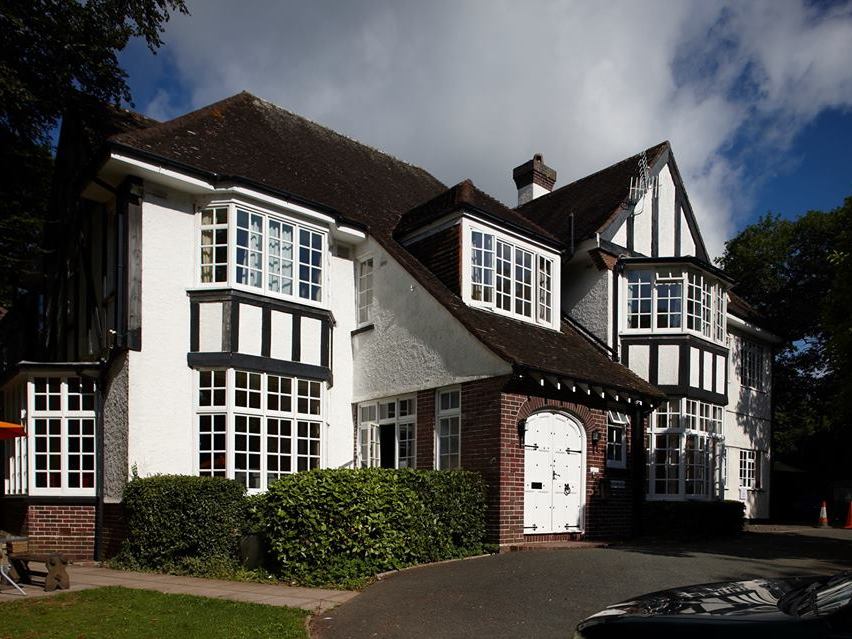Residential addiction services in England cut by third amid drug overdose and funding crisis, figures show
‘Considering that there is a crisis of drug related deaths in this country, these figures could not be more shocking’

Your support helps us to tell the story
From reproductive rights to climate change to Big Tech, The Independent is on the ground when the story is developing. Whether it's investigating the financials of Elon Musk's pro-Trump PAC or producing our latest documentary, 'The A Word', which shines a light on the American women fighting for reproductive rights, we know how important it is to parse out the facts from the messaging.
At such a critical moment in US history, we need reporters on the ground. Your donation allows us to keep sending journalists to speak to both sides of the story.
The Independent is trusted by Americans across the entire political spectrum. And unlike many other quality news outlets, we choose not to lock Americans out of our reporting and analysis with paywalls. We believe quality journalism should be available to everyone, paid for by those who can afford it.
Your support makes all the difference.The number of live-in drug and alcohol rehabilitation services in England has fallen by one-third in six years, according to a new analysis which reveals the damaging toll of austerity cuts as drug deaths soar.
There were 195 residential rehabilitation and detox services registered with the Care Quality Commission (CQC) in England in 2013, but by 2019 this had fallen to just 132 active centres.
Rehabilitation centres are typically run by charities or private companies, but many rely on councils to fund placements for people with addiction issues.
Experts have warned that as budgets fall councils are sending more people to cheaper community-based rehabilitation, including day centres and groups.
While community services can provide support for some, treatment providers and people who have used residential rehabilitation say it is still an integral part of addiction, and can be “lifesaving”.
“I don’t think looking at my journey into recovery that it would have ever started if I had been asked to do my detox and rehabilitation in the community,” Peter Krykant, 42, told The Independent.
At the turn of the millennium Mr Krykant had been homeless for three years after moving to Birmingham from Scotland. He was receiving prescription methadone, and benzodiazepines, in addition to “vast amounts of heroin and crack cocaine”, but a grant through the city’s rough sleepers team funded a place at the Princess Diana Drug and Alcohol Treatment Centre – which has since closed.
“There’s no way that would happen now,” Mr Krykant said. “People need to tick so many boxes and if you’re entrenched in street drug use, crime, homelessness, there’s no way that people who are the hardest to reach are getting access to residential treatment.
“That’s my bugbear.”

He said residential rehabilitation, which is an opportunity for counselling alongside addiction treatments, particularly benefits people who may have had traumatic experiences that led to their drug use, or resulted from it.
“We are so superficial in the way we deal with people who are addicted to drugs and alcohol that we don’t give them opportunities to really change when we don’t give them that space and time.
“A lot of money was spent on me to go through that but I’ve now been paying into the system for many years.”
The fall comes as councils in England struggle to maintain services in the face of swingeing government cuts.
Drug deaths in England and Wales have set new records in each of the last four years. This is driven by rising abuse of potent opioid painkillers like fentanyl and an ageing generation of lifelong heroin users.
Despite this, spending on both residential rehab and detox services, as well as community rehabilitation schemes, has fallen by as much as £135m according to an analysis of council spending by private rehabilitation provider UK Addiction Treatment Centres.
The result is councils are less willing to place people in residential centres, and eventually they may be forced to close. UKAT’s analysis shows that residential rehabilitation services have fallen from 42 to 18 in London, while in the northeast only one of six centres open in 2013 is still active.
Broadreach House in Plymouth ceased trading in July after nearly 40 years providing rehabilitation to patients across the UK.
“The irony of this predicament is that we are currently at full capacity, with the demand for our services in recent months being greater than ever,” the charity said in a post on Facebook.
Mike Pattinson, executive director of Change Grow Live, one of the largest drug treatment providers in England, told The Independent residential centres continued to play an “integral role” in treatment.
“We regret the continual and almost relentless closure of such services – with Broadreach House and City Roads in London being two of the latest casualties.
“Whilst it is true that residential treatment is more expensive than community-based options, in some circumstances it remains entirely appropriate and can be lifesaving.”
He said the impact of cuts and the decision to shift responsibility for drug treatment and other public health responsibilities to local authorities had been “felt most acutely” in residential rehab.
Once closed the expertise linked with these services can be gone for good.
“Considering that there is a crisis of drug-related deaths in this country, these figures could not be more shocking,” said Niamh Eastwood of charity Release, which advocates for a public health, rather than criminal justice, approach to drug policy.
But she warned community services had been drastically cut as well, to the extent that some were struggling to provide substitute prescribing of methadone, which can cut heroin overdose deaths.
Cllr Ian Hudspeth, chairman of the Local Government Association’s community wellbeing board, said: “In the past year, local authorities have spent more than £700m on tackling substance misuse.
“However, cuts to councils’ public health grant by central government have consequences. We have long argued that reductions to councils’ public health funding, which is used to pay for drug and alcohol prevention and treatment services, is a false economy which will only compound acute pressures for criminal justice and NHS services further down the line.
“Leaving councils to pick up the bill for treating new and increasing numbers of users while having fewer resources cannot be an option.”
A Department of Health and Social Care spokesperson said: “Drug use in this country is lower now than it was a decade ago, with more adults leaving treatment successfully – while alcohol consumption has fallen overall.
“As part of our long term plan for the NHS, alcohol care teams will be rolled out in hospitals with the highest number of alcohol-related admissions and we are also giving £3.5bn to councils this year to fund public health services, including those for addiction.”
Join our commenting forum
Join thought-provoking conversations, follow other Independent readers and see their replies
Comments